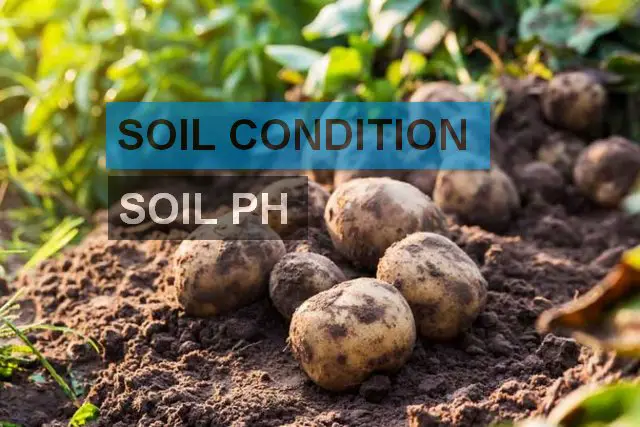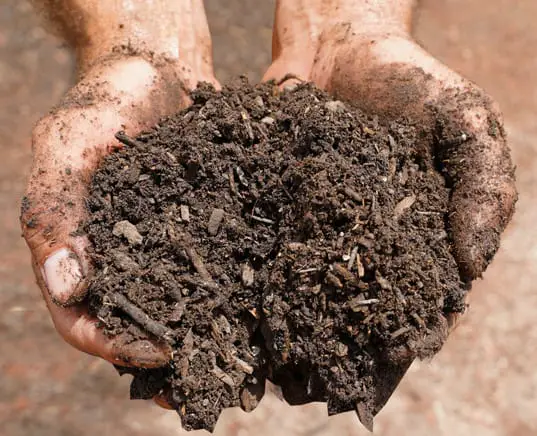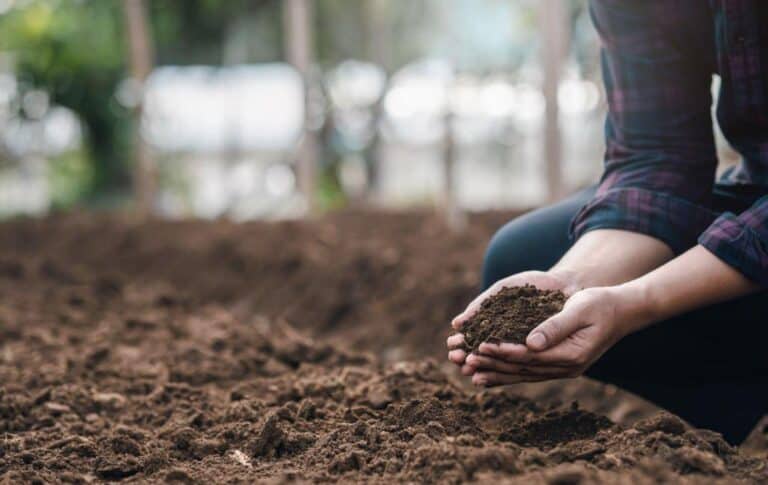How Long Should Cow Manure Age Before Using? Cow Dung Composting
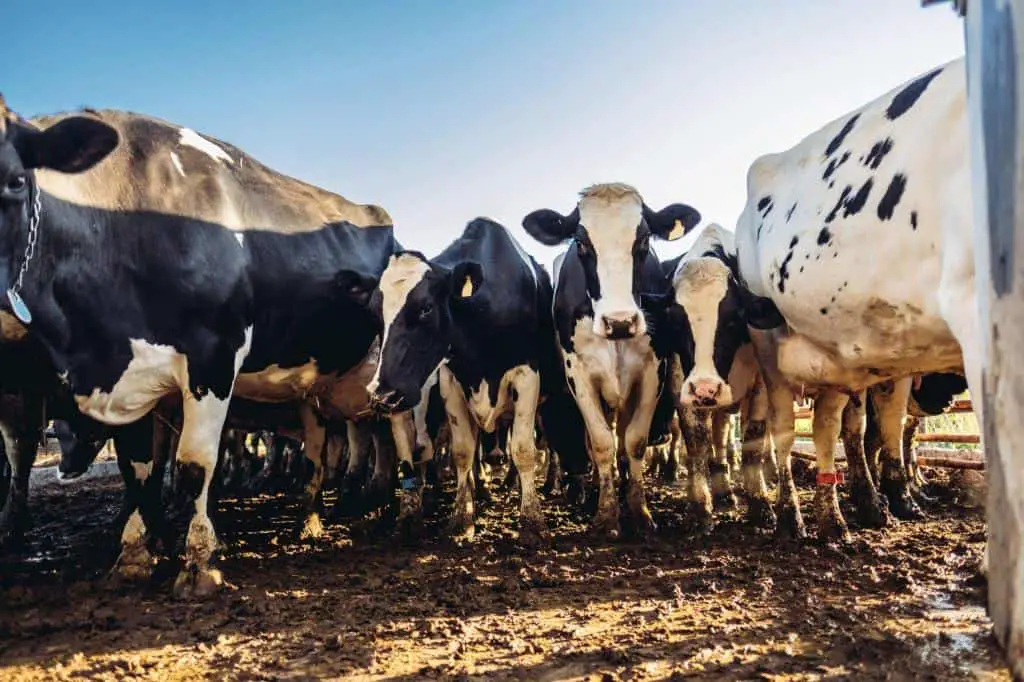
In the world of gardening and farming, there is a hidden treasure that can work wonders for your soil’s health: cow manure. Yes, you read that right. Cow dung is gold for your plants, but there’s a catch. You can’t just scoop it up fresh from the barn and spread it on your garden beds; that’s a recipe for disaster.
Enter the ancient art of cow dung composting, a process that transforms the raw, pungent material into a magical elixir for your soil. But here’s the million-dollar question: how long should cow manure age before it becomes a gardener’s best friend?
Cow manure should be aged for at least 3–6 months before use. Fresh cow manure is quite dense and high in ammonia, so it needs to be aged to reduce its acidity levels and weed seed content.
It’s a journey into the world of cow dung composting that we’re about to embark on, and the answers might surprise you.
In this article, we’ll delve into the intricacies of cow dung composting, exploring its benefits, ideal aging duration, and the steps to ensure your garden thrives. Buckle up, green thumbs, because by the end of this article, you’ll be armed with the knowledge to turn cow dung into black gold for your garden. Let’s dive in!
Understanding Cow Manure as a Soil Amendment
Cow manure is more than just farmyard waste; it’s a powerhouse of nutrients for your garden soil. Cow manure, often referred to as cow dung, is the excrement of cattle. It’s composed of feces and urine, sometimes mixed with bedding material like straw or hay.
Why do gardeners prize cow manure? The answer lies in its nutrient-rich composition. Cow manure contains essential elements like nitrogen, phosphorus, and potassium (N-P-K), which are vital for plant growth. Additionally, it’s teeming with beneficial microorganisms that promote soil fertility.
Beyond its nutrient content, cow manure enhances soil structure. It improves soil aeration and water retention, creating a hospitable environment for plant roots to thrive. This improved soil structure also reduces soil erosion.
The Importance of Composting Cow Manure
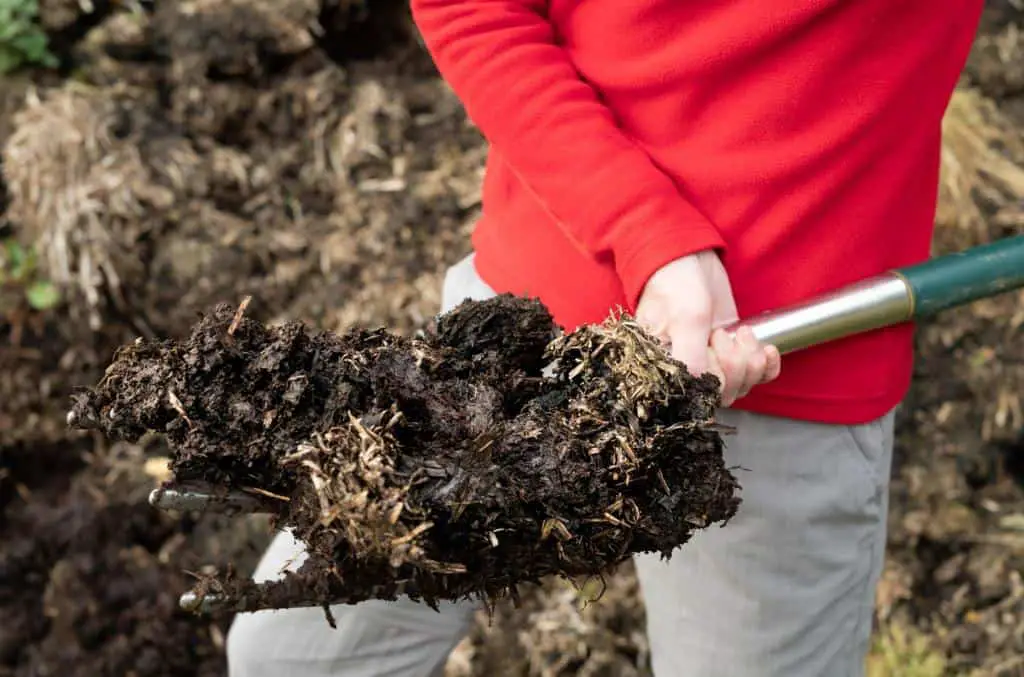
Composting is nature’s way of recycling organic matter. It involves the decomposition of organic materials by microorganisms into a nutrient-rich soil conditioner. Composting cow manure helps eliminate odors, pathogens, and weed seeds, making it safe for plants.
Raw cow manure, when fresh, can be too “hot” for plants, meaning it’s high in ammonia in manure can burn plants and their roots. Composting helps break down these harmful compounds and stabilizes the nutrient content, making it suitable for plants.
Composted cow manure offers a plethora of benefits for your garden. It enriches the soil with organic matter, improves soil structure, and provides a slow-release source of nutrients for plants. Additionally, it encourages beneficial soil organisms, further enhancing soil health.
The Benefits of Aging Cow Manure
Aging cow manure offers several advantages for both the environment and your gardening efforts:
- Pathogen Reduction: The composting process naturally heats up the manure pile, killing harmful pathogens and parasites present in fresh cow dung.
- Weed Seed Elimination: Composting also destroys weed seeds, preventing them from sprouting in your garden beds.
- Improved Nutrient Balance: As the manure ages, the nitrogen content decreases, making it more balanced and less likely to burn your plants with excess nutrients.
- Better Soil Structure: Compost improves soil structure, making it more aerated and better at retaining moisture.
- Reduction in Odor: Aging cow manure reduces the pungent odor associated with fresh dung, making it more pleasant to work with.
How Long Should Cow Manure Age Before Using?
The ideal aging period for cow manure can vary depending on several factors, including the composting method, environmental conditions, and the intended use of the compost. Generally, cow manure should age for a minimum of 3 to 6 months to ensure it’s safe and effective for your plants. However, for optimal results, consider extending the aging period to 12 months or more.
Here’s a breakdown of the aging process:
| Age of Cow Manure | Characteristics |
| 0-3 Months | Still high in ammonia and urea, not safe for plants. |
| 3-6 Months | Pathogens and weed seeds are mostly eliminated. |
| 6-12 Months | Nitrogen levels are balanced and suitable for gardens. |
| 12+ Months | Fully aged, nutrient-rich compost for best results. |
Remember that these are approximate timeframes. Factors like temperature, moisture, and the size of the compost pile can influence the speed of the composting process. Regular turning of the pile can accelerate decomposition.
See also: How Long Does Fresh Manure Take To Rot and Age Before Using?
Cow Dung Composting Methods
There are various methods you can employ to compost cow manure, each with its own set of advantages and considerations. Here are some popular options:
1. Traditional Pile Composting
Traditional composting involves creating a pile of cow manure mixed with organic materials like straw, leaves, or kitchen scraps. Turning the pile regularly helps aerate it and speed up decomposition. This method is simple and effective but may require more space.
2. Vermicomposting
Vermicomposting utilizes earthworms to break down cow manure into rich compost. It’s an efficient method that produces high-quality compost, but it requires a controlled environment and a supply of red worms.
3. Compost Bins
Compost bins offer a contained and organized way to compost cow manure. They come in various sizes and designs, making them suitable for both small-scale and large-scale composting. Bins help maintain moisture levels and keep pests out.
4. In-Ground Trenches
For those with ample space, in-ground trenches are an option. You dig a trench, add layers of cow manure and organic materials, and cover it with soil. This method allows for gradual decomposition and is especially useful for large quantities of manure.
Tips for Successful Cow Dung Composting
Whether you choose traditional pile composting, vermicomposting, bins, or trenches, here are some tips to ensure your cow dung composting venture is a success:
- Balanced Mix: Maintain a balanced ratio of cow manure to carbon-rich materials like straw or leaves. A 1:1 or 2:1 ratio is ideal.
- Moisture Control: Keep the compost pile consistently moist, like a wrung-out sponge. Avoid excessive wetness or dryness.
- Aeration: Turn the compost pile regularly to aerate it and promote even decomposition.
- Temperature Monitoring: Aim for a temperature of 130–160°F (54–71°C) within the compost pile to kill pathogens and weed seeds.
- Cover Your Pile: Use a cover or tarp to help regulate moisture levels and prevent the pile from getting too wet during heavy rains.
- Patience: Composting takes time. Be patient and allow the process to complete before using the compost in your garden.
Can I Speed up the Aging Process of Cow Manure?
Certainly! Speeding up the aging process of cow manure is entirely possible with the right approach. To achieve this, you’ll want to focus on a few key practices. First, regular turning of the compost pile is essential. This helps mix the materials, exposing them to oxygen and promoting decomposition. Additionally, it prevents the pile from becoming too compact, which can slow down the aging process.
Another crucial factor is maintaining proper moisture levels. Cow manure compost should be damp but not soggy. If it’s too dry, decomposition will stall; if it’s too wet, it can lead to unpleasant odors. Regularly check the moisture content and adjust it as needed to keep things on track.
Lastly, ensuring adequate aeration is vital. You can compost manure fast and accomplish this by simply poking holes in the pile or by using a compost turner. Proper aeration allows beneficial microorganisms to thrive and break down the manure more efficiently, ultimately speeding up the aging process. By following these practices, you’ll have rich, well-aged cow manure ready for use in your garden or farm in no time.
Conclusion
Cow dung composting is a sustainable and eco-friendly way to improve your garden’s soil quality. The key to success lies in aging the cow manure appropriately, with a minimum of 3 to 6 months for basic safety and up to 12 months or more for optimal results.
By following the composting methods and tips outlined in this article, you can transform cow dung into a valuable resource that enhances the health and productivity of your plants. So roll up your sleeves, start composting, and watch your garden flourish with the benefits of well-aged cow manure.
FAQs on Proper Cow Manure Aging
Can you use fresh cow manure in the garden?
No, using fresh cow manure directly in the garden is not recommended. It contains high ammonia levels and pathogens, which can harm plants. Composting or aging is essential.
What are the risks of using unaged cow manure?
Unaged cow manure can harm plants due to high ammonia, potential pathogens, and weed seeds. It may also emit a strong odor and lack nutrient balance.
Is there a difference between aged and composted cow manure?
Aged cow manure is partially decomposed and safer but less nutrient-rich. Composted cow manure is fully decomposed, nutrient-rich, and poses minimal risks.
Are there alternatives to cow manure for enriching soil?
Yes, alternatives include compost from various organic materials, such as kitchen scraps, leaves, and straw, as well as commercial organic fertilizers.
Is there a risk of pathogens in cow manure, and how can it be mitigated?
Yes, cow manure may contain pathogens. Mitigate the risk by ensuring the compost reaches a temperature of 130-160°F (54-71°C) during the composting process, which kills pathogens.
What’s the best way to store cow manure while it’s aging?
Store aging cow manure in a covered pile or bin to maintain moisture levels and prevent nutrient loss.
Can I use cow manure compost on all types of plants?
Cow manure compost is suitable for most plants but should be used judiciously. Some sensitive plants may require a diluted application.


